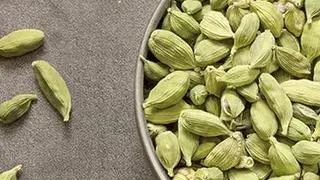The National Commodity and Derivatives Exchange will launch futures trading in Basmati Paddy–Pusa 1121 from Wednesday. Introduction of this new contract will facilitate an effective risk management tool for market participants and provide a fair price discovery platform for the highly volatile basmati paddy, it said.
Karnal, the core trading centre of Haryana, will be the basis delivery centre, while Sonipat is the additional delivery centre for Paddy futures contracts. The delivery lot size would be 10 tonnes, with a compulsory delivery option.
Global rice production is about 501.5 million tonnes. India contributes about 23 per cent of global output with production of about 116 million tonnes.
Known for its quality, global Basmati rice production is pegged at 9 million tonnes. India produces about 5.5 million tonnes and commands over 70 per cent of global output. Pakistan accounts for the rest of the global production.
Of the overall paddy output in India, basmati accounts for about 5 per cent. Vijay Kumar, Managing Director, NCDEX, said the addition of a paddy basmati futures contract to the grain product basket is aimed at offering exhaustive and wholesome risk management to the market.
Kapil Dev, Executive Vice-President (Business), NCDEX, said the Indian grain industry has been growing at a steady pace but is exposed to high price risks.
Measuring demand
The food grain industry uses wheat, maize and paddy as inputs to measure the demand and supply trend of grains and any adverse price movement can erode the whole profit margin of the industry, he said.
The NCDEX already has wheat and maize futures on its platform and the addition of basmati will provide a wholesome hedging tool for the entire value chain. While safeguarding industry price risks, this hedging instrument will help commodity participants get a better price realisation for their grain and enhance their income, he said.
After a lull, the NCDEX has been launching futures for new products. Last Monday, the exchange launched futures trading in ‘unprocessed whole raw moong’.
Five moong contracts expiring between August and December are now available for trading with a trading and delivery unit of five tonnes.
India is the largest producer of moong with over 70 per cent market share.







Comments
Comments have to be in English, and in full sentences. They cannot be abusive or personal. Please abide by our community guidelines for posting your comments.
We have migrated to a new commenting platform. If you are already a registered user of TheHindu Businessline and logged in, you may continue to engage with our articles. If you do not have an account please register and login to post comments. Users can access their older comments by logging into their accounts on Vuukle.